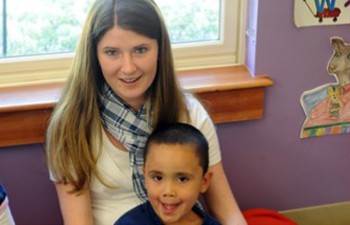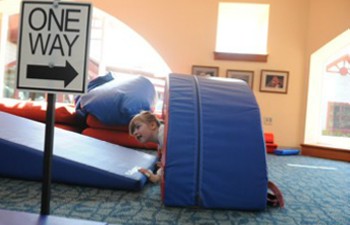The center implements “Investigations,” a curriculum for young children that was developed by university faculty, the director, and classroom teachers. The curriculum is based on the theories of Piaget, Vygotsky, and Malaguzzi, and the classroom applications of their work by Forman, Gandini, Katz, Leong, and Bedrova. The curriculum is centered around engaging projects—called investigations–on topics that are selected by children, teachers, and families. As children investigate a topic–in learning centers, small collaborative groups, whole group activities, movement and music experiences, outdoor observation, or field trips—they acquire critical competencies identified in the Connecticut State Department of Education Curriculum and Assessment Framework and the standards of national professional organizations. Children’s progress toward achieving these competencies is assessed through anecdotal records, sampling of children’s work and play, photos and video, and interviews with parents
Four pillars—evidence-based strategies—support children’s investigations: play scaffolding (a special kind of adult support as children play), collaborative learning projects, evidence-based arrangement of learning centers, and portfolio assessment.
Investigations Handbook
An example of our curriculum in action can be found here as children learn about Bones through variety of hands-on key experiences:
Investigation: Bones
During an investigation of Simple Machines, children zoomed in on WHEELS. See the powerpoint presentation highlighting our Key Experiences (PROJECTS) on Wheels.
BALLS Investigations featured at our Investigations Conference 2012
View videos of our recent investigations with young children



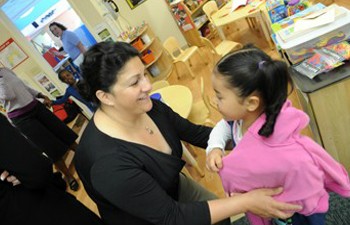
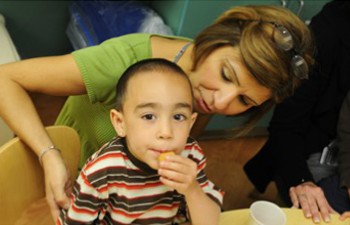

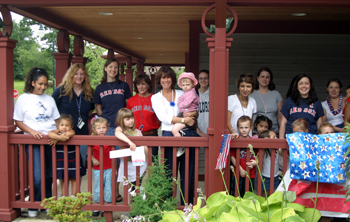 Admission is based on a waitlist selection system. All applications are entered into our waitlist by date completed. Upon acceptance into the program, income verification will be required in order to determine sliding scale tuition. For more information, please contact us at 860-465-5225.
Admission is based on a waitlist selection system. All applications are entered into our waitlist by date completed. Upon acceptance into the program, income verification will be required in order to determine sliding scale tuition. For more information, please contact us at 860-465-5225.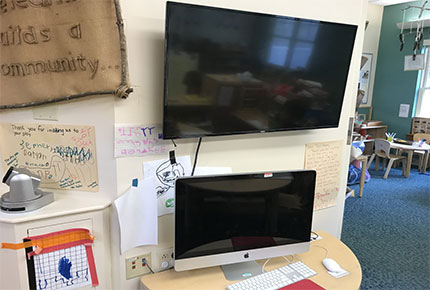 The technology available to the children, families and teachers at the Center is state-of-the-art. Teachers can observe, record and document children engaged in curriculum projects. These images and video allow for the collection and reflection on children’s growth and development over time and provide a wonderful opportunity for sharing with families. Children are developing skills as problem solvers, risk takers and creative thinkers as they interact with the educational technology available in the classroom.
The technology available to the children, families and teachers at the Center is state-of-the-art. Teachers can observe, record and document children engaged in curriculum projects. These images and video allow for the collection and reflection on children’s growth and development over time and provide a wonderful opportunity for sharing with families. Children are developing skills as problem solvers, risk takers and creative thinkers as they interact with the educational technology available in the classroom.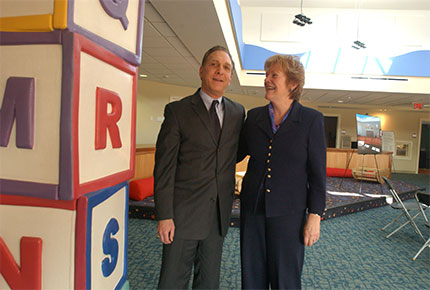 The
The